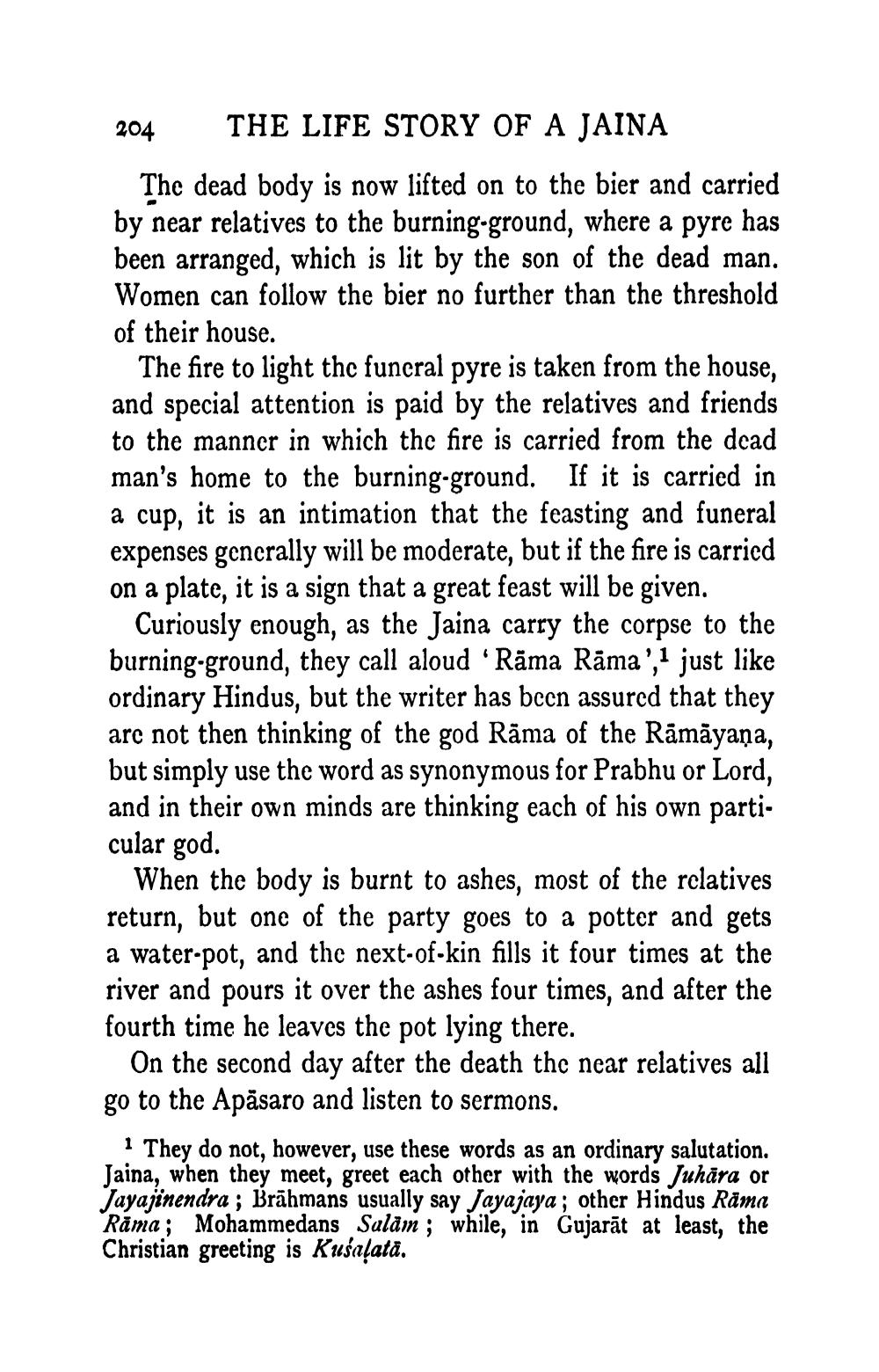________________
204 THE LIFE STORY OF A JAINA
The dead body is now lifted on to the bier and carried by near relatives to the burning-ground, where a pyre has been arranged, which is lit by the son of the dead man. Women can follow the bier no further than the threshold of their house.
The fire to light the funeral pyre is taken from the house, and special attention is paid by the relatives and friends to the manner in which the fire is carried from the dead man's home to the burning-ground. If it is carried in a cup, it is an intimation that the feasting and funeral expenses generally will be moderate, but if the fire is carried on a plate, it is a sign that a great feast will be given.
Curiously enough, as the Jaina carry the corpse to the burning-ground, they call aloud Rāma Rāma',1 just like ordinary Hindus, but the writer has been assured that they are not then thinking of the god Rāma of the Rāmāyaṇa, but simply use the word as synonymous for Prabhu or Lord, and in their own minds are thinking each of his own particular god.
When the body is burnt to ashes, most of the relatives return, but one of the party goes to a potter and gets a water-pot, and the next-of-kin fills it four times at the river and pours it over the ashes four times, and after the fourth time he leaves the pot lying there.
On the second day after the death the near relatives all go to the Apăsaro and listen to sermons.
1 They do not, however, use these words as an ordinary salutation. Taina, when they meet, greet each other with the words Juhära or Jayajinendra; Brāhmans usually say Jayajaya; other Hindus Räma Ráma; Mohammedans Salam ; while, in Gujarāt at least, the Christian greeting is Kušațată.




